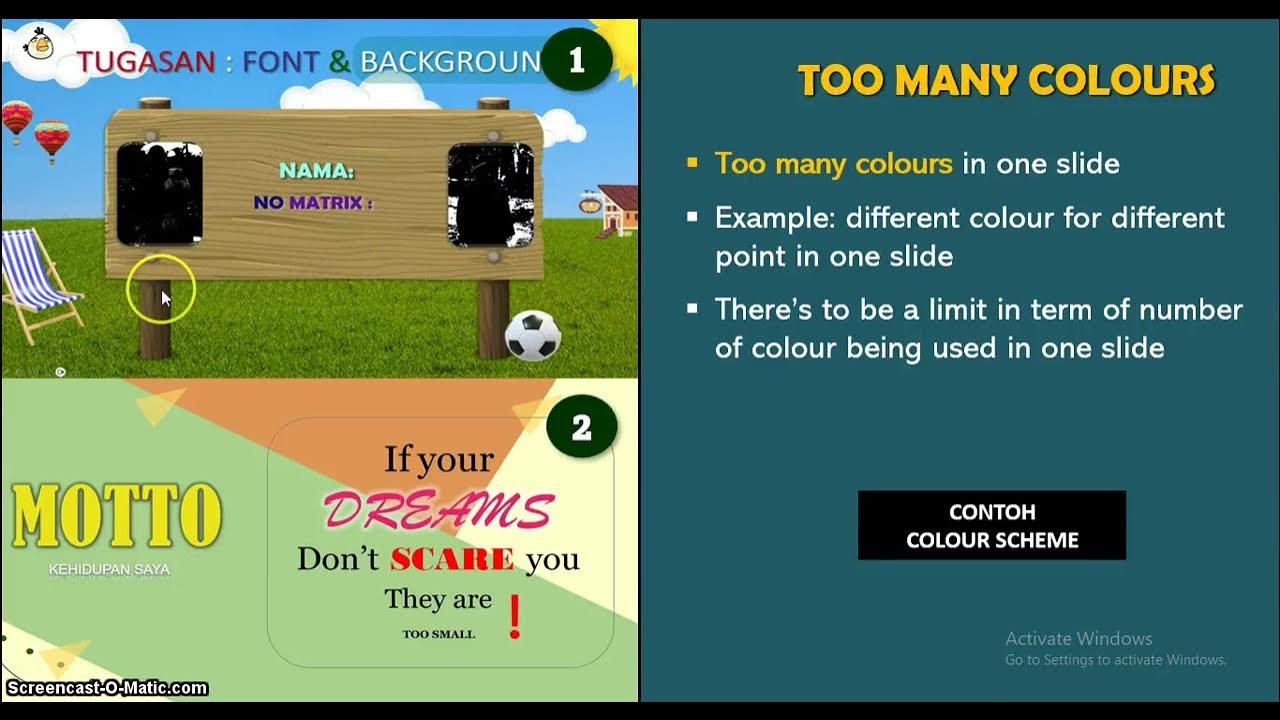How to do thematic analysis - a common mistake when developing a thematic framework
Summary
TLDRIn this video, the speaker discusses a common mistake many researchers make when creating thematic frameworks: overcomplicating them with unnecessary jargon. While the number of themes in a study can vary, the problem arises when the terms used sound overly sophisticated, confusing the study's message. The speaker emphasizes the importance of clarity and simplicity, especially when presenting research to a wider audience. The video advises keeping frameworks straightforward, focusing on the study's core aim, and only using specialized terms when absolutely necessary to ensure the findings are easily understood.
Takeaways
- 😀 Avoid making your thematic framework sound overly complex. It's important that it remains clear and straightforward.
- 😀 The number of themes in a thematic framework can vary depending on the study, but complexity should be kept manageable.
- 😀 The problem isn't the number of themes but the confusing terminology that can make a framework hard to understand.
- 😀 Overly sophisticated or academic-sounding terms can confuse your audience, especially if the study is relatively simple.
- 😀 If your study is straightforward (e.g., about group work or educational methods), keep your themes simple, like 'benefits' and 'challenges'.
- 😀 Academic language is acceptable if the study is aimed at specialists in the field, but it should be avoided for general audiences.
- 😀 If a thematic framework is filled with confusing terminology, even experienced researchers may struggle to understand it.
- 😀 A clear thematic framework should allow someone unfamiliar with your study to understand the main findings.
- 😀 It's important to strike a balance between using specialized language and ensuring clarity in your framework.
- 😀 When in doubt, simpler and clearer language is usually the best choice for most thematic frameworks, especially for non-specialist audiences.
Q & A
What is the main mistake that the speaker addresses in the video?
-The main mistake the speaker addresses is making thematic frameworks sound too complex and confusing, often due to the use of overly sophisticated terminology.
Is the issue with the number of themes in a framework?
-No, the issue is not with the number of themes. The number of themes can vary depending on the complexity of the study. The problem arises when the language used in the framework is unnecessarily complex.
What does the speaker mean by 'sound too complex'?
-The speaker means that the thematic framework may appear overly complicated due to the use of confusing or overly sophisticated terms that make it difficult to understand, even if the study itself is straightforward.
Is it always wrong to use complex terms in a thematic framework?
-No, it's not always wrong. The speaker acknowledges that in specialized studies aimed at experts in a specific field, some complex terminology may be necessary and understood by the intended audience.
What should be the primary goal of a thematic framework?
-The primary goal of a thematic framework should be clarity. It should allow others to easily understand the focus of the study and what was found without confusion.
How does the speaker suggest improving thematic frameworks?
-The speaker suggests keeping the language simple and clear. While specialized terms are sometimes unavoidable, the overall framework should be accessible and easy to understand.
Can using overly complex terms lead to confusion in thematic frameworks?
-Yes, using overly complex or technical terms can cause confusion, even in relatively straightforward studies, making it harder for others to understand the purpose and findings of the study.
What example does the speaker provide of a simple study?
-The speaker gives an example of a study on group work, where the framework might include themes like 'benefits of group work' and 'challenges of group work.' This type of study doesn’t require complex terminology and should remain simple.
What happens when someone reviews a complicated thematic framework?
-When reviewing an overly complicated thematic framework, the speaker often finds it difficult to understand the study's focus and findings, leading to confusion about the research direction and conclusions.
What advice does the speaker give regarding the use of specialized language in a thematic framework?
-The speaker advises that while specialized language may be necessary in certain academic contexts, it should only be used when absolutely required. Otherwise, simpler and clearer language should be preferred to ensure accessibility.
Outlines

Этот раздел доступен только подписчикам платных тарифов. Пожалуйста, перейдите на платный тариф для доступа.
Перейти на платный тарифMindmap

Этот раздел доступен только подписчикам платных тарифов. Пожалуйста, перейдите на платный тариф для доступа.
Перейти на платный тарифKeywords

Этот раздел доступен только подписчикам платных тарифов. Пожалуйста, перейдите на платный тариф для доступа.
Перейти на платный тарифHighlights

Этот раздел доступен только подписчикам платных тарифов. Пожалуйста, перейдите на платный тариф для доступа.
Перейти на платный тарифTranscripts

Этот раздел доступен только подписчикам платных тарифов. Пожалуйста, перейдите на платный тариф для доступа.
Перейти на платный тарифПосмотреть больше похожих видео
5.0 / 5 (0 votes)






